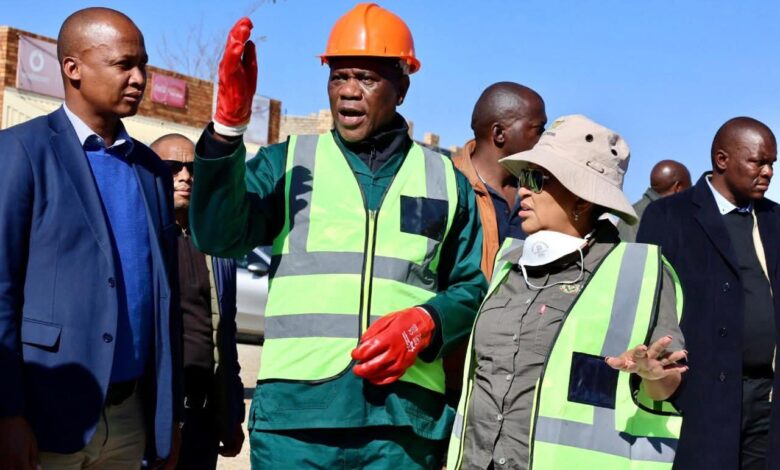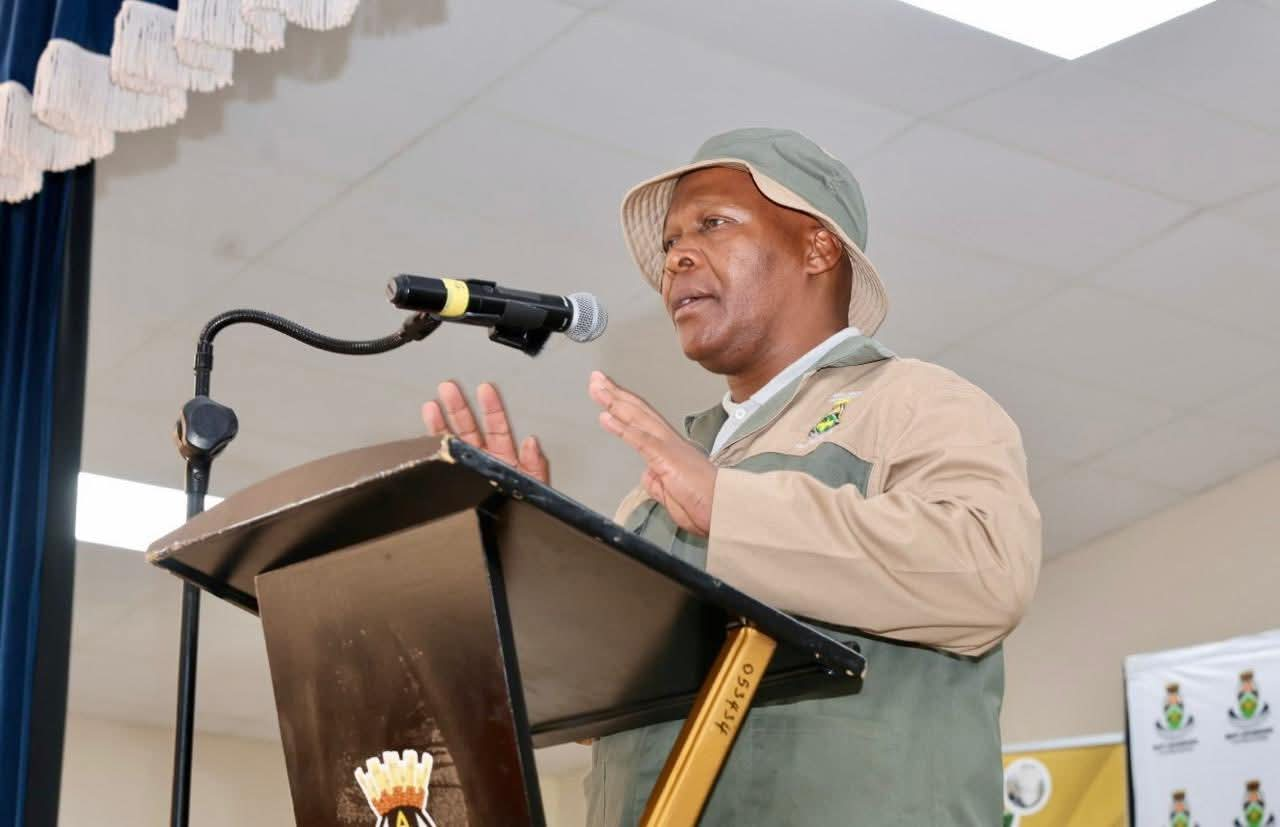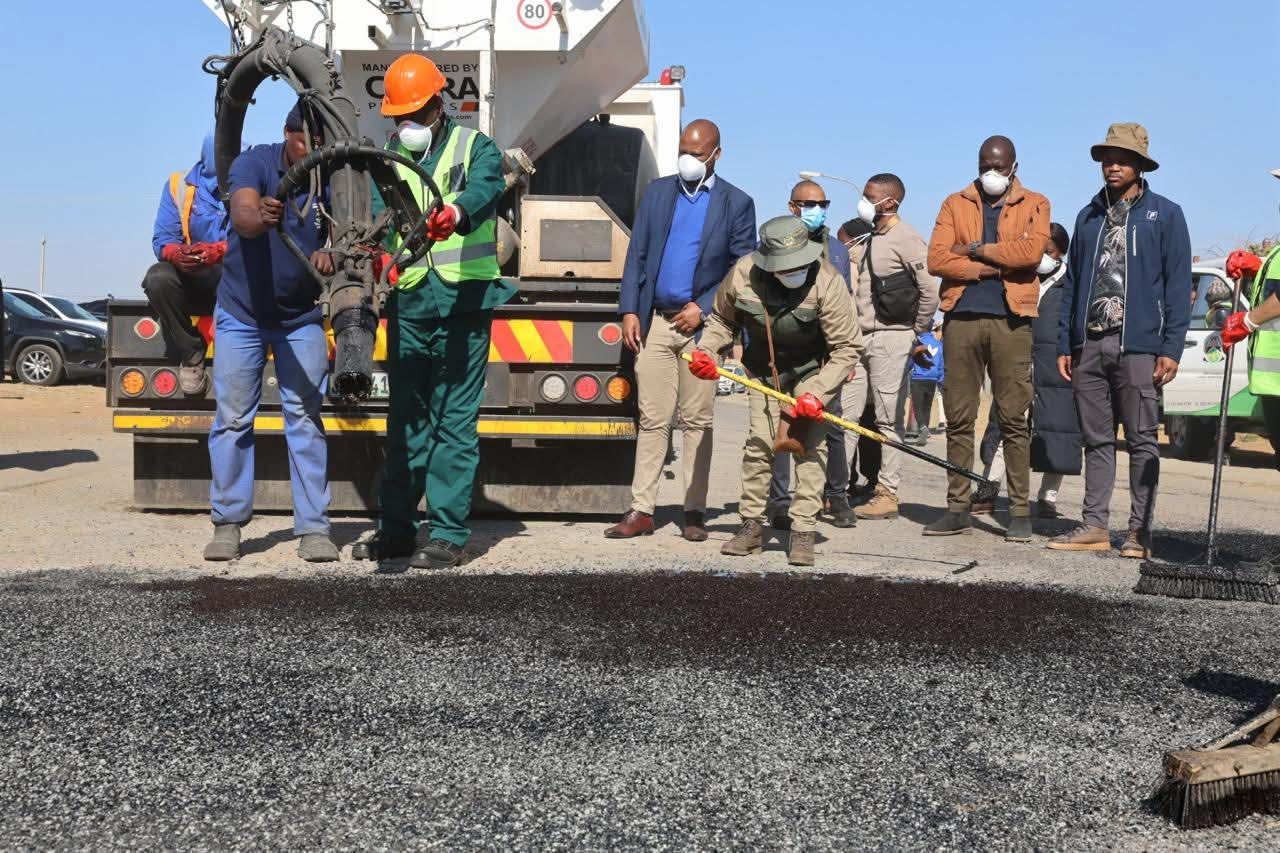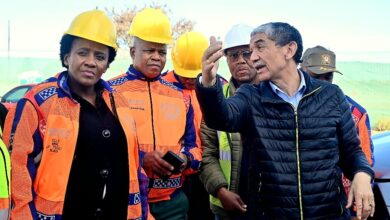Deputy President Paul Mashatile Led Service Delivery and Cleaning Campaign in Matjhabeng

“This Campaign Must Become a Way of Life”
To mark the start of Mandela Month, Deputy President Paul Mashatile, alongside Free State Premier MaQueen Letsoha-Mathae, launched an integrated cleaning and service delivery campaign on Tuesday, 1 July 2025, in the Matjhabeng Local Municipality. The initiative forms part of a broader national effort to foster cleaner, safer, and more habitable communities across South Africa.
The campaign is aligned with the District Development Model (DDM), which promotes intergovernmental cooperation, collaboration and integrated planning. By leveraging resources and capacity across national, provincial, and local spheres, the programme seeks to accelerate service delivery and encourage active community participation in environmental upkeep and development.

The day commenced with a visit to the Renergen helium plant, a multi-billion-rand project with the potential to transform the Free State economy. Helium, often overlooked, plays a crucial role in key sectors such as energy, healthcare, and advanced manufacturing. The facility is expected to create jobs, boost local economic activity, and contribute to national energy resilience.
The Deputy President then visited the Matjhabeng Wastewater Treatment Plant, where a significant infrastructure upgrade funded through collaboration between national and local government is addressing longstanding water and sanitation challenges. Over R100 million has been invested in the refurbishment of this vital facility, which will improve service reliability and sustainability for surrounding communities.

A pothole patching operation followed, highlighting the campaign’s holistic approach to infrastructure renewal. The day concluded with a community engagement session in Thabong, Welkom, where residents had direct access to services including healthcare, social development, and home affairs.
In her address, Premier Letsoha-Mathae emphasised the importance of clean communities. “Unclean environments” she said “ contribute to a range of social problems, including crime. We believe that poorly maintained towns breed lawlessness. That’s why we’re bringing integrated services directly to our communities, so people feel government’s presence where it matters most”
The cleaning campaign, first launched in Kliptown, Gauteng, has steadily gained momentum and is now being replicated across provinces. At its core is the belief that cleaner cities attract investment, support public health, and spark local economic growth. But its impact extends beyond this. It is about restoring dignity and ensuring that residents have reliable access to basic services such as water, electricity, and sanitation.
“This must not remain a campaign. It must become a way of life” said Deputy President Mashatile.
He added that; “A clean environment is the foundation for a functioning, prosperous society. We must also guard and maintain our infrastructure to ensure long-term benefits. And as leaders, we must leave our offices and meet people where they are; to listen, understand, and respond to their lived realities”




